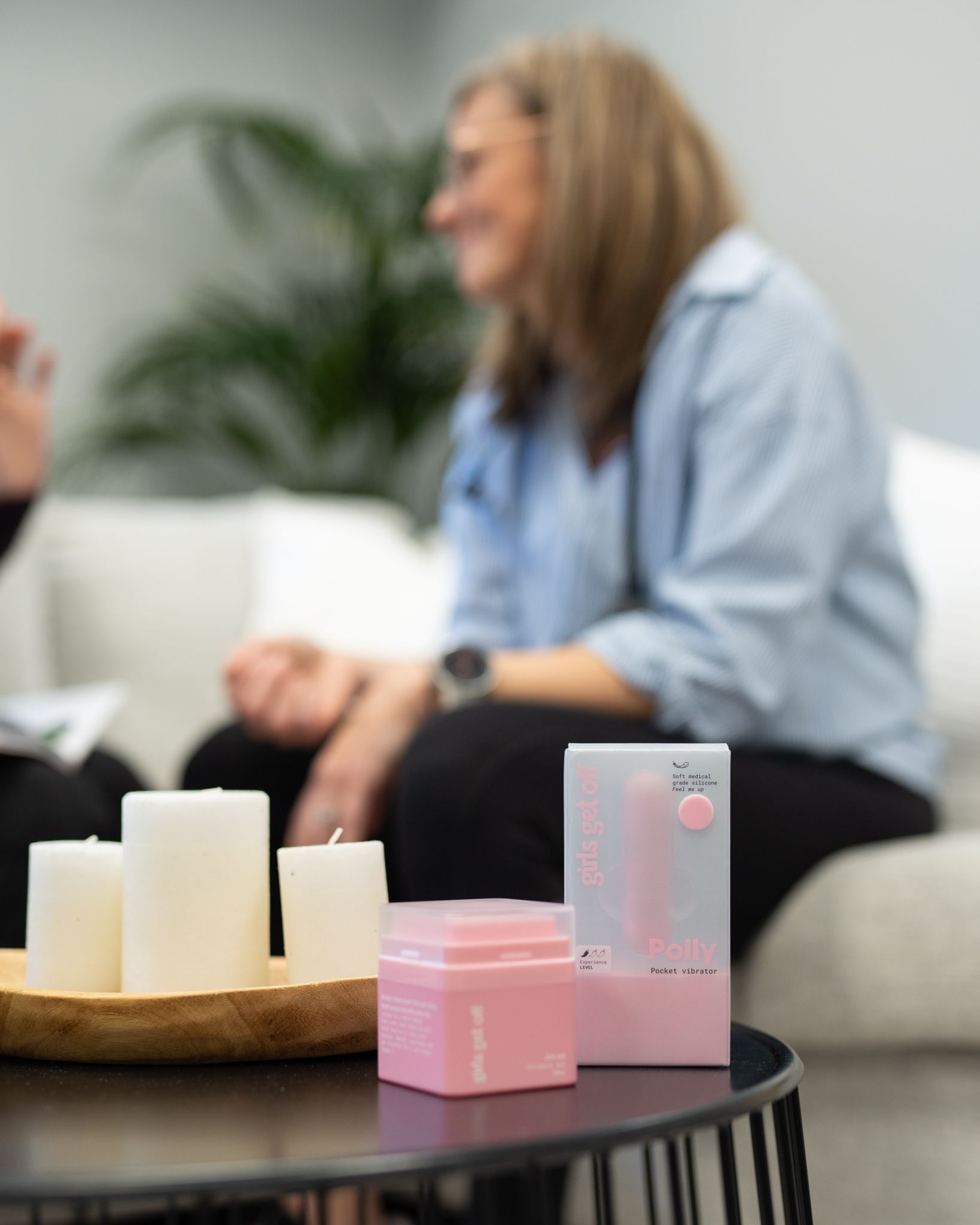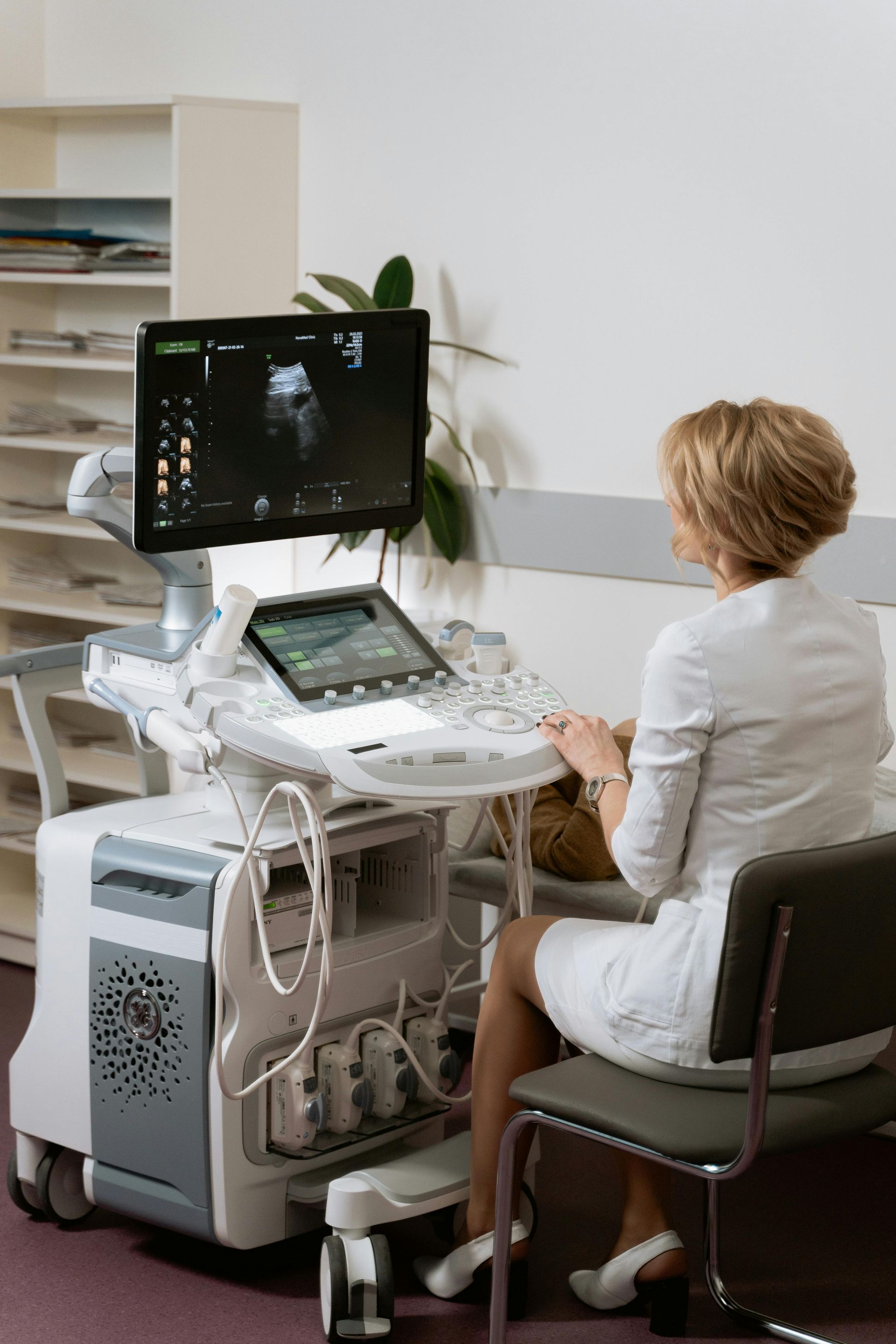PROCEDURE
Pipelle (endometrial biopsy)
A pipelle biopsy is a simple, minimally invasive procedure used to collect a sample of the endometrial lining to investigate unusual bleeding or to check for conditions like endometrial cancer. At FemaleGP, it is not just a pipelle. We understand that addressing your health concerns is vital, and we're here to support you every step of the way. This page is there to walk you through the whole process, from a referral to FemaleGP (if applicable), the procedure and what happens afterwards. The tabs explain what abnormal bleeding is and why a pipelle is medically recommended, what to expect, and how to help prepare yourself and what risks you should be aware of as well as how you may feel afterwards and how you will get your results.
For more information follow the links on the left.

Your GP has referred you for a pipelle
Dr Samantha Newman runs FemaleGP Clinic in Napier South.
If you need an endometrial biopsy your GP is able to refer you to FemaleGP for it to be done. Your GP will need to send us a referral (with a CPO number), this will ensure that the appointment is funded.
Your GP should also have referred you for an ultrasound scan. This will be done at one of the private providers in Hawkes Bay, but will also be funded
We appreciate that this can be a worrying time so we want to make it as easy as possible for you. Any referral we get we contact you, but click on the button below and put your details in and we will get in touch to speed up the process.

Why should a pipelle be done if you have abnormal uterine bleeding?
The most important thing is understanding why you may need a procedure. And what we are looking for.
Abnormal vaginal bleeding is any bleeding that is different from your normal period. This can include bleeding between periods, very heavy periods, or bleeding after sex or bleeding when you are post menopause. For women who have gone through menopause, any bleeding is not normal.

Why and what?
A pelvic ultrasound (USS) is a non-invasive imaging test that helps visualize the organs and structures within the pelvis. It's often used to examine the uterus, ovaries, fallopian tubes, cervix, and bladder in women.
An ultrasound of your pelvis is usually done before a pipelle procedure. The results of the USS can help guide us as to whether a pipelle is needed.

What is a pipelle and why is it needed?
A Pipelle biopsy is performed to obtain a small sample of the lining of the uterus (endometrium) to check for abnormal cells, polyps, or other conditions. It is commonly used to investigate abnormal uterine bleeding, assess the endometrium in postmenopausal women, or monitor hormone therapy.
The cells removed from the womb are then sent to the lab to be examined under the microscope.
I will give you the opportunity to receive back your sample, as we understand that this is part of you.

Practicalities of the procedure
The procedure is done in the FemaleGP Clinic in Napier and you are booked for 20-30 minutes. It is quick and usually takes only a few minutes (most of the time is taken up getting to know you and setting up to ensure you are in the right position!).
The procedure can be quite crampy, similar to severe menstrual pain, so we advise you to take a pain reliever, such as ibuprofen, about 30-60 minutes before the procedure to help reduce discomfort. The procedure can be done if are menstruating or have vaginal bleeding, and also if you have a Mirena/IUD in situ already.
You may wish to bring a support person with you. They can wait outside or be in the procedure room with you. You may also want to bring some headphones. You can eat and drink beforehand. Afterward, you should be good to go home straight away, but be aware that you are unlikely to feel like rushing.
During the procedure, you will lie on a (pink) examination table with your feet in stirrups. If your support person is present they are positioned facing your head, to maintain your privacy. First of all your blood pressure is taken, then an examination of your abdomen, and then a vaginal examination to assess the position and size of your uterus (womb). A speculum will be inserted into the vagina to allow access to the cervix, and a thin tube called the Pipelle will be passed through the cervix into the uterus to collect a tissue sample.
This step may cause cramping or discomfort similar to menstrual cramps. While generally manageable, some individuals may find it more uncomfortable. If your body finds it too much then as you are always in control we stop. To help reduce discomfort, focus on deep breathing and relaxing your pelvic muscles throughout the procedure. We will support you through the procedure.

The risks associated with a pipelle
Like any procedure, a Pipelle biopsy comes with some risks, but overall, it is very safe. The most common side effects include pain, similar to menstrual cramps, and light bleeding. Rarely, more serious complications can occur, such as uterine perforation (occurring in less than 1 in 1,000 cases) or heavy bleeding and infection (occurring in about 1 in 300 cases). In some instances, the procedure may be unsuccessful due to inability to access the uterine cavity, which happens occasionally but is generally manageable.
Fundamentally, we always review why we are doing it, and ensure that the benefits outweigh the risks.

The day of the appointment
We will send you some information about the appointment, and you can contact us if you have any questions.
The procedure can be quite crampy, similar to severe menstrual pain, so we advise you to take a pain reliever, such as ibuprofen, about 30-60 minutes before the procedure to help reduce discomfort.
The procedure can be done if are menstruating or have vaginal bleeding, and also if you have a Mirena/IUD in situ already.
You may wish to bring a support person with you. They can wait outside or be in the procedure room with you. You may also want to bring some headphones. You can eat and drink beforehand. Afterward, you should be good to go home straight away, but be aware that you are unlikely to feel like rushing.
For those who like to know a bit more: ibuprofen also helps the cervix (neck of the womb) open, making the procedure easier. The procedure is crampy because the womb is a muscle and is cramping down on the pipelle.

What to expect afterwards
After a Pipelle procedure, it is normal to experience light bleeding or spotting, and you may have some mild cramping or discomfort, similar to period pain. We have pads available for you to use after the procedure.
To help manage any pain, you can take over-the-counter pain relief, such as ibuprofen or acetaminophen, and rest as needed. Using a heating pad on your lower abdomen may also help alleviate cramping.
If you have severe, or worsening pain, heavy bleeding or abnormal discharge these are signs that you may have an infection so we recommend you seek medical attention
The results from your Pipelle sample usually take 1-2 weeks. You will be able to access your results through the FemaleGP portal, and we will follow up on the results and inform your GP. If you continue to have bleeding, even if the sample is normal, we recommend that you see your GP or return to us for a follow-up, as you may still need a referral to a gynecologist.
Frequently asked questions
Got a question? We’re here to help.
-
What information will I receive?
We will send you some information about the appointment, and you can contact us if you have any questions.
-
Why should I take ibuprofen?
Ibuprofen also helps the cervix (neck of the womb) open, making the procedure easier (and maybe even possible). The procedure is crampy because the womb is a muscle and is cramping down on the pipelle. It isn't just about being strong and coping with the pain.
-
Do you use local anaesthetic?
Local anaesthetic isn't generally used because it isn't needed. Unfortunately there isn't a pain relief option that can take away the cramps from the womb.
-
What doctor will I see?
Dr Samantha is the only practitioner doing face to face consults. She does train colleagues, and will sometimes have a clinical assistant (either a doctor or an experienced nurse), which improves your experience as the patient, but also helps with training and improving access in the community.
-
How long is the wait time?
We prioritise all referrals for a pipelle and try to get you booked within 2-4 weeks.
-
Can Dr Samantha start me on HRT at the same time?
Unfortunately this appointment is only funded for the pipelle. If you would like to find out about other services, please ask our reception team and they will be able to advise you

